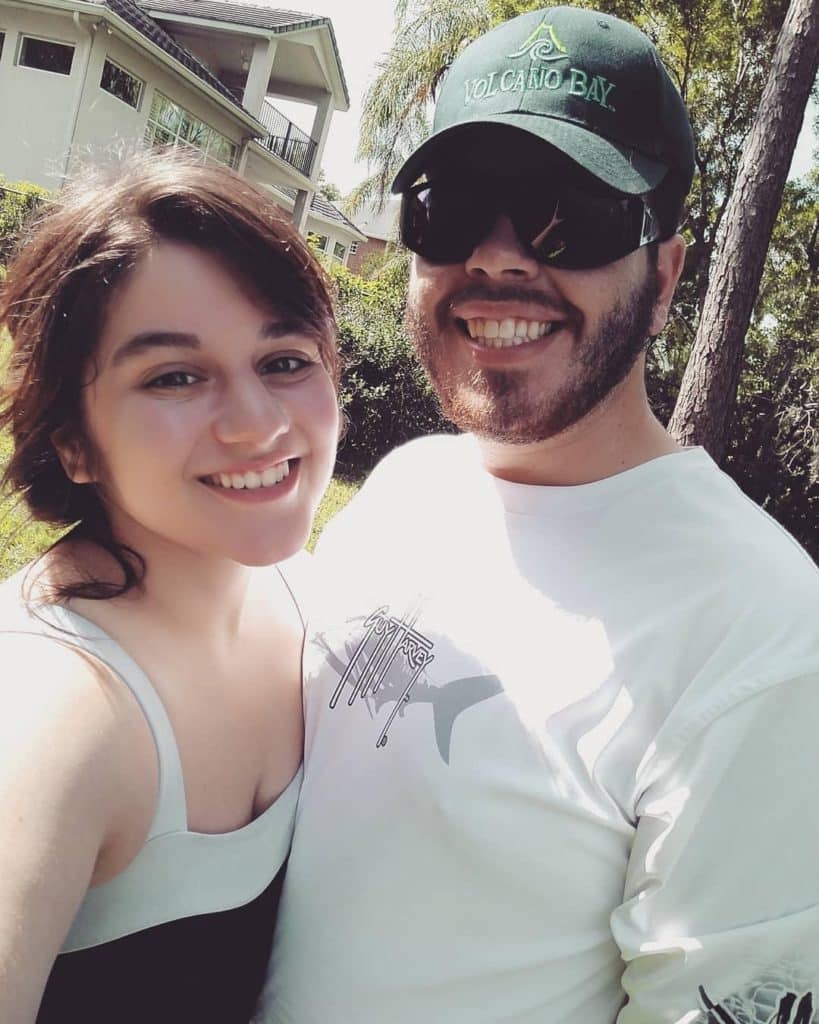 My name is Hayley and I’ve recently bought a house with my significant other! During the spring lockdown for COVID-19, we began discussing how our lease would be ending in September and what we should be doing about that. It was in those discussions that we thought, “what if we bought a house?” We hated our current rental situation and the most common thing we heard from people was that the promise of buying vs. renting is that when you buy, the money is an investment. When you rent, you’re purchasing a house for your landlord.
My name is Hayley and I’ve recently bought a house with my significant other! During the spring lockdown for COVID-19, we began discussing how our lease would be ending in September and what we should be doing about that. It was in those discussions that we thought, “what if we bought a house?” We hated our current rental situation and the most common thing we heard from people was that the promise of buying vs. renting is that when you buy, the money is an investment. When you rent, you’re purchasing a house for your landlord.
I’m privileged enough to work at Keller Williams on a team of skilled and knowledgeable individuals who know real estate like the back of their hand. When I brought up the idea of purchasing our first home, they were all thrilled to hear that we were thinking about taking a step into home ownership.
While I have a wonderful group of people who I work with who answered every question we had about the process, I realized not everyone works at Keller Williams. The following is a summarized guide of what to expect when purchasing a home.
Shopping for Lenders
One of the first things we were told to do was contact a lender and see what we could afford financially. When shopping for a lender, we realized we weren’t stuck with our personal banks’ financial services, we could actually pick whoever we wanted for our lender services. At this step, feel free to shop around for a lender that will offer you the best deal moving forward. One of the things we took into consideration when shopping around for a lender was:
- The responsiveness of the lender,
- The possible interest rate they could offer us,
- What fees are associated with using their services.
The process of choosing a lender and learning if you can even afford to purchase a home will require the lender to look through some of your financials, your job history, and your credit history. Once you’ve chosen a lender and you’ve been told you’re financially ready to purchase a home, your lender should describe to you the different ways to purchase a home: Cash, Conventional, FHA, VA Loan Financing, or USDA Loans. Learn more about the difference between mortgage loan types.
Finding a Realtor
Finding a realtor is probably going to be one of the most important things you do. You’re not marrying your realtor, but this is someone who is going to be representing your best interests! You’re going to want to make sure you pick someone who you trust to take care of you and communicate with you the whole way through.
When looking for a realtor, try and decide what area you’d like to live in; most areas have a realtor who truly dominates that area’s sales. Why wouldn’t you want someone who knows your preferred area? They know everything about the town, the community, the neighborhoods, how the market is looking, etc. Another great source of information would be to see reviews for the agent or team you’re thinking about hiring. What were other people’s experiences with this realtor? How did they do?
Be sure to interview a few people; this will be the person who guides you through your real estate journey.
Finding a House
This was the emotionally draining part, in my honest opinion. After tightening our timeline down and finalizing our financial situation (or so we thought), we were put on a search and we waited for homes to pop up that we thought could be the one.
Over the course of 2 months, we learned that our price range was the same as many other buyers in the Central Florida area. We realized we could actually (and safely) stretch our loan amount a little higher than we previous thought, to give us a little more of an advantage when it came to putting in offers. Still, finding a potential contender and competing with other offers that ranged from FHA to Cash, made it very hard to stand as the best offer to choose. Around the end of June, we firmed up what our best offer would look like and narrowed down the areas of search. We were exhausted from seeing homes that weren’t quite right and seeing homes that could have been perfect, but were out-bid on by well over the asking price.
 Was it something wrong with us? Was what we had not enough? Is this something that we needed to hold off on for another year? We didn’t want to settle on a house; as Jean always told us, we’re not buying a loaf of bread at the grocery store. We’re buying a house.
Was it something wrong with us? Was what we had not enough? Is this something that we needed to hold off on for another year? We didn’t want to settle on a house; as Jean always told us, we’re not buying a loaf of bread at the grocery store. We’re buying a house.
As we drifted closer to our deadline, we began thinking about having to rent and giving up our search. We made the decision that if we didn’t find and go under contract by a certain date, we’d give up and focus on finding a rental house, which is a different search entirely.
But then it happened. Our search notified us of a home, we immediately scheduled a showing to go see it, and we fell in love with it. Jean contacted the agent and we submitted our offer.
…and we won.
Under Contract
What does being under contract mean? We were once again ecstatic and had a lot of faith that this would be the house we could call home. But being under contract is only part of the process. While it depends on your contract, we had to go through some steps before closing on our home:
- Escrow
- Inspections
- Appraisal
- Financing
- Closing
With so many steps, we initially felt overwhelmed. Luckily, we had a team of people who knew the answers to any questions we had. For us, our mains points of contact were our realtors, our loan officer, the title company, and our realtors’ transaction coordinator.
Escrow
What’s an escrow? In this case, an escrow refers to a “good faith” money deposit that shows the sellers of a home that you’re serious about purchasing. From the seller’s perspective, it wouldn’t be good if they took their home off the market for anyone less than serious. This good faith escrow is part of your total payment for the house and services at the end of the day. For example, if to buy a house you need your down payment, as well as money to pay for lender, title, and other miscellaneous fees, lets say it costs $15,000. If you’ve put $2,500 into escrow, the total amount you’ll bring to the table will actually be $12,500.
Inspections
This is your time. You get to pick your house inspector (do your own research, but also ask your realtor if they have any recommendations.) The inspection of a home is an overall look of the house to ensure you aren’t buying something that’s going to fall apart the second you move in. If you have your inspections and there’s a million and one things wrong with the house, are you stuck with buying the house?
The answer depends on how your contract was written and what type of financing contingencies you have. In our case, we were able to leave one of our contracts because the inspection resulted in too many things we’d have to repair. because of our inspection contingency, we were able to leave contract while still keeping our escrow. No one wants to lose $2,000 when there was no way for us to know what was wrong with the house at first glance.
Lets say there’s a few things wrong and you want to move forward with the house. At this point, your realtor will negotiate on your behalf with the seller’s agent to try and make things work for both sides.
Appraisal
You’ve made it passed inspections and into the appraisal. What exactly is an appraisal?
When a house gets listed, the realtor listing that home will usually base the listing price off of comparable prices (otherwise knowns as comps) in the neighboring area/neighborhood. Sometimes, however, a house can be over priced. An appraiser will come out and appraise the home based on the comps in the surrounding area and the condition the home is in. If a buyer gets the results back that the $300,000 home is actually worth $310,000, the buyer isn’t required to tell the seller any exact amounts, only that the appraisal came back good.
One option is that the appraisal comes back that the house listed at $300,000 is actually worth $300,000. Meaning all parties can move forward into the next step without any hassle. On the other hand, if the appraisal comes back that the $300,000 home is actually worth only $290,000, your bank loan that has an appraisal contingency (an FHA loan) will say they’re only willing to loan you that amount.
The buyer and seller’s agents will have to discuss how to move forward; will they lower the listing price to match the appraisal? Or a little? Will the buyer have to pay out of pocket to cushion the difference? Or can the buyer responsibly ask for their loan amount to be raised? These are the subjects discussed with trying to move through the appraisal process.
Financing
Remember all the applications and information you sent to your lender? That’s all getting double checked and reviewed. At this point, you’ll just want to make sure you’ve sent everything that your lender has asked you to submit. Missing one document could slow down the whole process. It’s at this point that you’ll also want to get the final numbers from your loan offer and title company; you’ll preferably need to wire the remaining amount of money due to Title and you’ll want to ensure it’s done earlier than later. Funds that aren’t sent on time usually delay closings.
Closing Day

Congratulations! You’ve closed on your very first home. To ensure a timely and efficient move in, you’ll want to make sure that you’ve transferred your utilities from your previous residence to your new home, you’ll want to change your address with the DMV and the U.S Postal Service so that your mail doesn’t end up lost, and you’ll want to do a quick clean of your home.
If you have any questions about buying or selling your home, please feel free to reach out at (407) 564 2758. We’re more than happy to help you in your real estate ventures.





